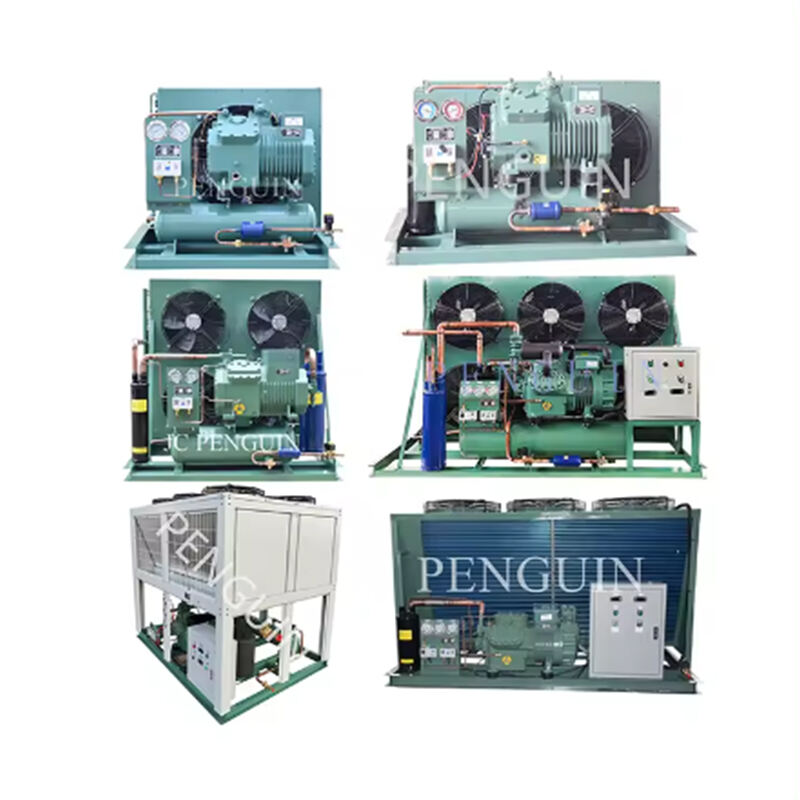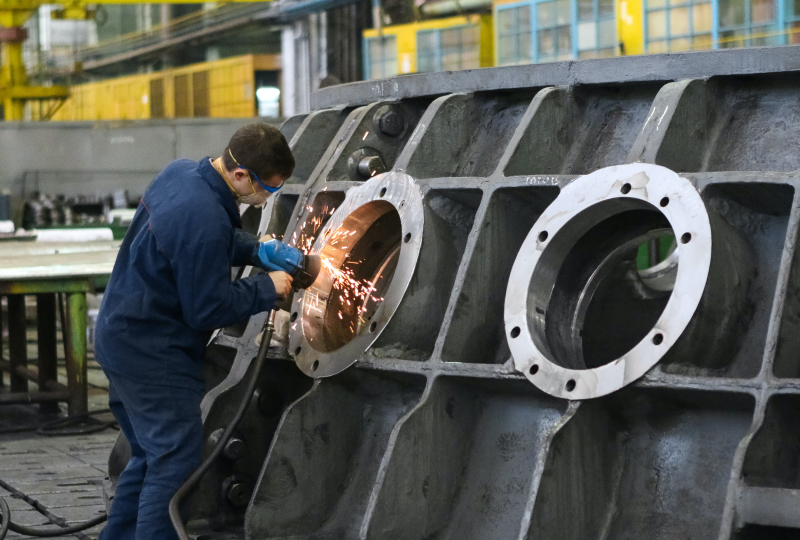A Look at the Pros and Cons of Air and Water Cooling for Industrial Refrigeration Units
For commercial or industrial cooling, you have only 2 leading choices: Air Cooling Water Cooling Each of them comes with their own pros and cons, so you have to think which one is appropriate for your particular case.
Commercial refrigeration cooling: air vs. water
Air Cooling:
Advantages:
Low initial cost: Installation and maintenance costs of air-cooled systems are generally lower than those for water-cooled systems.
Installation: Air-cooled systems are very simple to install as it does not require complex plumbing and can be placed in a number of different sites.
Less issues and breakdowns: Air-cooled systems are typically more simple that water-cooled, which means they have fewer parts and therefore less likelihood of technical problems or failures.
Disadvantages:
More energy: Since the same area is cooled, air-cooled systems require more power to do so than water-based ones making water based chillers better for long term usage of high powered equipment.
Less efficient in high temperatures: In warmer climates, air-cooled systems are not as capable of keeping indoor areas at attainable temperatures due to the soaring heat index outside.
The noise was from the machinery fans utilized as a part of its customary air cooling operations, and is questionable to cause both diversions and health-related issues for those working there.
Water Cooling:
Advantages:
Energy-efficient: A water-cooled process uses much less energy and can cool a significantly larger area than an air cooling solution.
Stable operating temperature: Water-cooled systems use chilled water to keep the server room at a constant, desired, cool temp regardless of ambient conditions.
Low noise: Water-cooled systems are, by design without additional soundproofing and more comfortable in use due to their low-noise operation.
Disadvantages:
Higher Installation costs: Since water-cooled systems require complicated setup/installation and maintenance compared to air-cooled, we have higher initial investment.
Water chillers install water-cooled systems; which require plumbing and piping that can eliminate the creative power of placement solutions, thereby presenting installation challenges.
Don Burkland, Chem-Aqua Gary Fields US A Water System 101 Chemical treatment Control of microorganisms (mold & algae etc) is necessary for water cooled systems.
Industrial Refrigeration - Air Cooling vs. Water Cooling
For industrial refrigeration, air and water cooling are both acceptable practices. But the right choice will vary, depending on factors like facility size, budget limitations and whether you need heat in addition to dehumidification -- as well as where your location.
Here we can talk about air-cooled systems which are less expensive to install and maintain as well more portable for smaller or even temporary facilities. On the other side of the coin, water-cooled systems can enable emission controls to be more efficient for large operations.
Exploring Air and Water Cooling Alternatives in Industrial Refrigeration Systems
In many cases Water Cooled Refrigeration systems are the ideal choice since they can handle high volumes of refrigerant best in larger scale refrigeration. These evaporative condensers, when coupled with chillers can enhance the effectiveness of the cooling systems in place.
Complex industrial refrigeration systems are more likely to use water-cooled designs that can deal with greater cooling loads and maintain throughput over the long term. Particular environmental aspects are to be accounted for, irrespective of the type of cooling system opted by businesses.
Analysis of the Costs (CAPEX & running) and Benefits; -Air cooling vs Water Cooling in Industrial Refrigeration application
Although the upfront costs of water-cooled systems may be more expensive to install, they can result in cost savings over time due to a greater level of energy efficiency and better performance. Air-cooled systems, on the other hand can end up costing more in energy bills and are less reliable for some environments.
In summary, the right choice between air and water cooling for industrial refrigeration is based on how big a facility you have, where it is located at, temperature as well as humidity requirements along with budget constraints. Understanding the pros and cons of each option allows businesses to make informed decisions that lead them down a path with the most successful outcome for their situation.

 AR
AR
 FR
FR
 DE
DE
 JA
JA
 KO
KO
 PL
PL
 PT
PT
 RU
RU
 ES
ES
 TL
TL
 ID
ID
 VI
VI
 TH
TH
 TR
TR
 MS
MS
 BN
BN
 LO
LO
 MN
MN
 MY
MY
 KK
KK
 TG
TG
 UZ
UZ
 KY
KY





